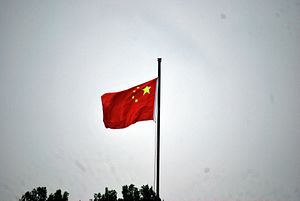To the side of the reception desk at a Crowne Plaza Hotel just north of Wilmington, Delaware in the United States hangs a small plaque. Placed between a sign stating that the hotel is owned and operated by Delaware Hotel Associates, LP, and a framed state of Delaware business license, the plaque says simply, “Minmetals.”
Were it not for the four Chinese characters accompanying the one-word English translation of Minmetals, few would suspect that the hotel’s ownership has anything to do with China. To the initiated, however, those four characters say, “Zhongguo Wu Kuang,” and they mean “China Minmetals Corporation.”
Minmetals is a behemoth mining, minerals, and metals organization owned and under the direct control of the Chinese government. It ranks number 109 on the Global Fortune 500 list of the world’s largest companies.
Minmetals reports directly to the powerful State Assets Supervision and Administration Commission (SASAC) of China’s central government. SASAC in turn reports directly to China’s State Council, the highest governmental authority in China.
SASAC is the largest economic entity on earth. Formed in 2003, SASAC has direct supervisory and administrative control over China’s state-owned enterprises (SOEs), with the exception of the banking and financial services sectors.
Nine responsibilities are listed on SASAC’s website. Among them, SASAC “performs the investor’s responsibilities, supervises and manages the State-owned assets of the enterprises under the supervision of the Central Government.” SASAC also “undertakes other tasks assigned by the State Council.”
SASAC’s portfolio of the Chinese government-owned enterprises that it manages reads like a Who’s Who of Chinese state-owned, Party-run business. SOEs included under SASAC’s mantle include, to name a few:
- China National Nuclear Corporation
- China Aerospace Science and Technology Corporation
- China Shipbuilding Industry Corporation
- China North Industries Group Corporation Limited (Norinco Group)
- China National Petroleum Corporation
- China National Offshore Oil Corporation
- State Grid Corporation of China
- China Mobile Communications Group Co Ltd
- China National Cereals, Oils & Foodstuffs Corporation
- China Resources (Holdings) Co Ltd
- China National Travel Service (HK) Group Corporation
And the list goes on. The Chinese state railroads, pharmaceutical, aviation, construction, and steel industries are all under the direct supervision of Minmetal’s supervisory body, along with the nuclear, aerospace, shipbuilding, military (Norinco), oil, power, foodstuffs, and travel industries represented in the list above.
And they all report to the State Council through SASAC.
So why does China’s state-owned mining company own and operate a dated yet nonetheless operable hotel just off Interstate 95 in Delaware, United States?
Staff say that the hotel was purchased by its Chinese owners seven to eight years ago, and that Chinese management representing the owner shows up about once a week. Yet few or none of the employees of the hotel are themselves Chinese.
Property purchases abroad by Chinese entities and individuals are nothing new. Purchases in residential areas of the New York City borough of Brooklyn are turning entire neighborhoods into Chinese-owned enclaves. As CNBC reports, “Chinese residents comprise the largest immigrant group in Brooklyn; the Chinese population in New York City is the largest outside of any Asian city.”
Hotel purchases by Chinese companies, such as HNA Group’s acquisition of Carlson Hotels, are now commonplace around the world.
But Chinese individual and Chinese private company purchases of not just residential but also commercial real estate represent a wholly different equation and potential impact than purchases made by a strategic state-owned enterprise reporting directly to the highest echelons of the Chinese government and Chinese Communist Party (CCP).
Delaware is one of the corporate capitals of the world. “More than 1,000,000 business entities have made Delaware their legal home. More than 66 percent of the Fortune 500 have chosen Delaware as their legal home,” according to the Delaware Division of Corporations.
The state is also a national center for credit card and insurance companies.
It would take a stretch of imagination to consider Minmetals’ Wilmington Crowne Plaza, considered also an airport hotel for Philadelphia International Airport, as anything but a benign, aging asset. The hotel is badly in need of refurbishment, and these days most Chinese SOE executives would not stay in anything less than a five-star hotel.
Unlike many major hotels in China, the rooms are probably not laden with listening devices. One can imagine that the conversations of tour groups are not of great interest to upper echelons of the Chinese government.
It is nonetheless worth considering why Minmetals would purchase such a property. If the hotel is profitable, such profits pale in comparison to its core industries of mining and metals.
If it is not profitable, what is the purpose of the asset?
The United States may not be in the direct path of China’s Belt and Road Initiative, but it is certainly in the path of Chinese state interest in business acquisition, domestic presence, and knowledge gathering. Quiet, understated platforms such as an old hotel can provide perfect jumping-off points for all three.

































